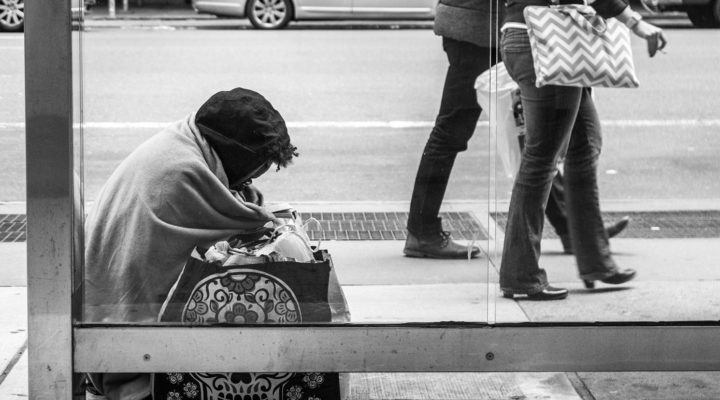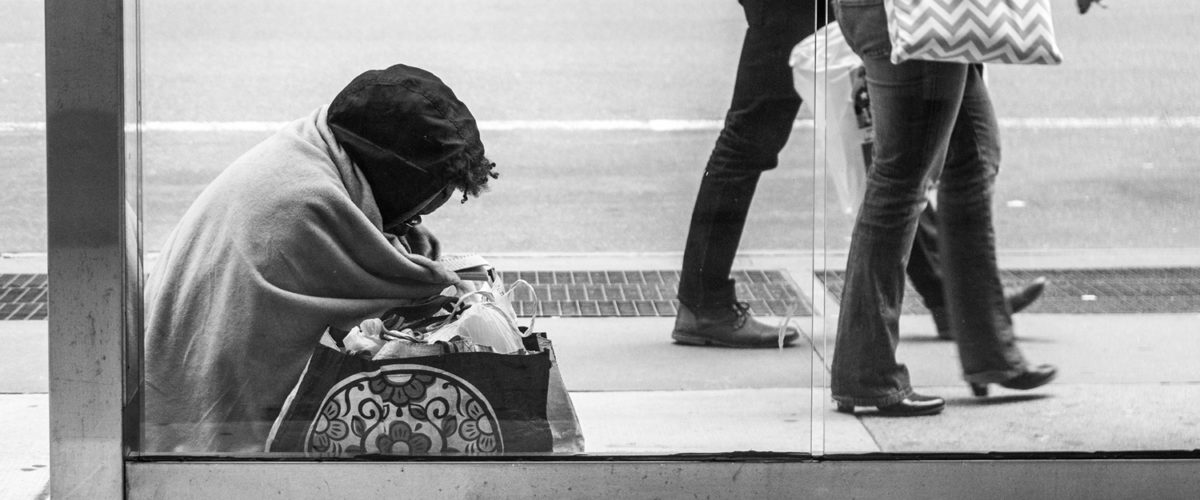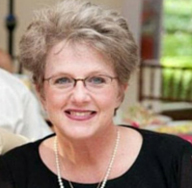Religious groups lead the way in cutting-edge approaches to serving the homeless, according to new research.
The Baylor University study, which was released Feb. 1, illuminates the energy and innovation churches and other faith-based organizations commonly devote to people living on the nation’s streets.
The study of trends in 11 U.S. cities found that people of faith are among the leaders in key practices aimed at ministering to those on the far reaches of society.
That’s nothing new to those who work with the homeless.
“It doesn’t surprise me at all,” said Betty Pugh Mills, the senior pastor at Hampton Baptist Church in Hampton, Va.
That church has been aggressively working to incorporate outreach to homeless and other marginalized people into its congregational identity. It has installed showers, launched a growing food bank and hosts a weekly meal for those in need, including homeless persons. It’s also partnering with other groups in the city to cooperate in housing and other ministries that are – as yet – not its forte.
As the Baylor study found, Mills said her congregation seeks ways to go to the root causes of homelessness and other social challenges in Hampton. Its ministries have become the touch points from which relationships are established and grown between church members, clergy and the community.
“Our congregation is on the cusp of trying to think about the Christian community as a place of hospitality,” she said. “It’s not just for homeless folks to feel safe, but also a place where the church connects with others who want to touch the lives of homeless persons.”
Churches are out in front in many of the values the federal government considers to be most important in responding to homelessness, according to the report by Baylor’s Institute for Studies of Religion.
The cities studied were Seattle, Portland, San Diego, Phoenix, Denver, Omaha, Houston, Indianapolis, Baltimore, Atlanta and Jacksonville.
In those cities, nearly 60 percent of emergency shelter beds are provided by religious groups, the report said. Those beds are considered by many to be “the ‘safety net of all safety nets’ for the homeless.”
“Our congregation is on the cusp of trying to think about the Christian community as a place of hospitality. It’s not just for homeless folks to feel safe, but also a place where the church connects with others who want to touch the lives of homeless persons.”
Faith-based organizations also offer a wide range of services – such as addiction recovery, education, health care and job training – that are considered critical to long-term independence.
The study also uncovered financial advantages in the involvement of religious groups in homeless services. Faith-based organizations create $9.42 in taxpayer savings for every dollar spent by the government.
Homeless programs operated by faith-based groups “are at the forefront of program innovation and organizational transformation for improving positive outcomes for the homeless individuals and families served,” according to the report.
In a story about the study published online by Baylor, social sciences Professor Byron R. Johnson said the research has been able to quantify the impact and value of religiously inspired homeless outreach.
“The data in this study sheds light on the largely overlooked, significant role of the multi-faith sector in addressing the homelessness challenge in urban and rural communities and doing so in innovative ways,” Johnson said in the Baylor article. “This research is helpful because it reveals the mainly untold story of the socio-economic impact of faith-based organizations on the common good health and flourishing of whole communities.”



